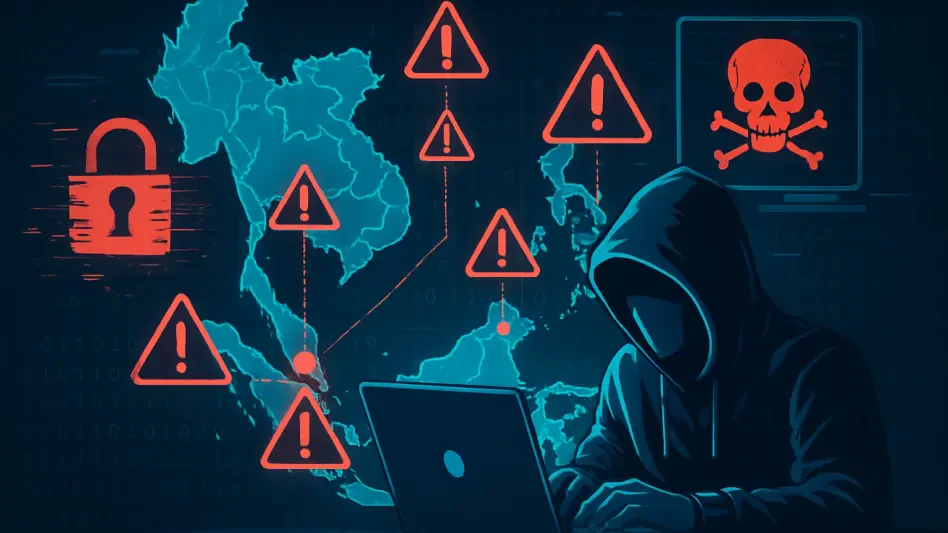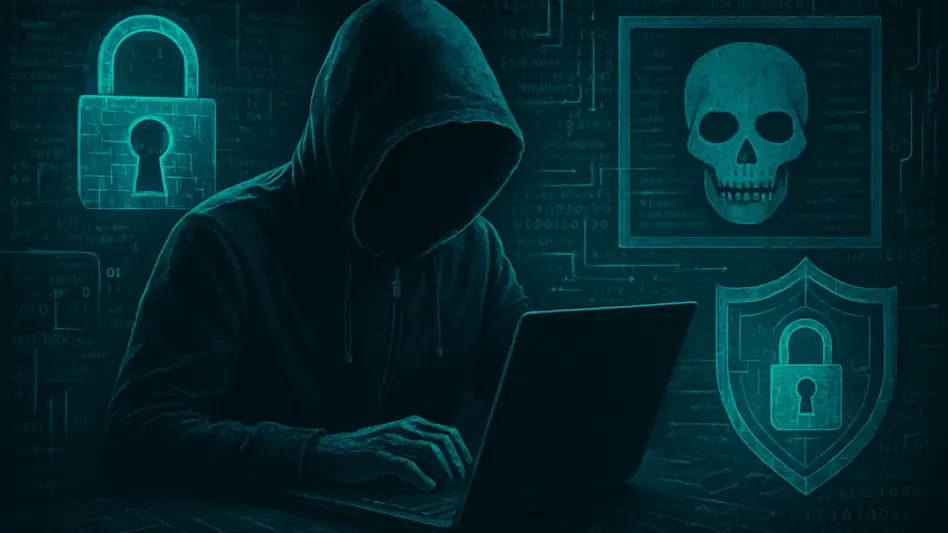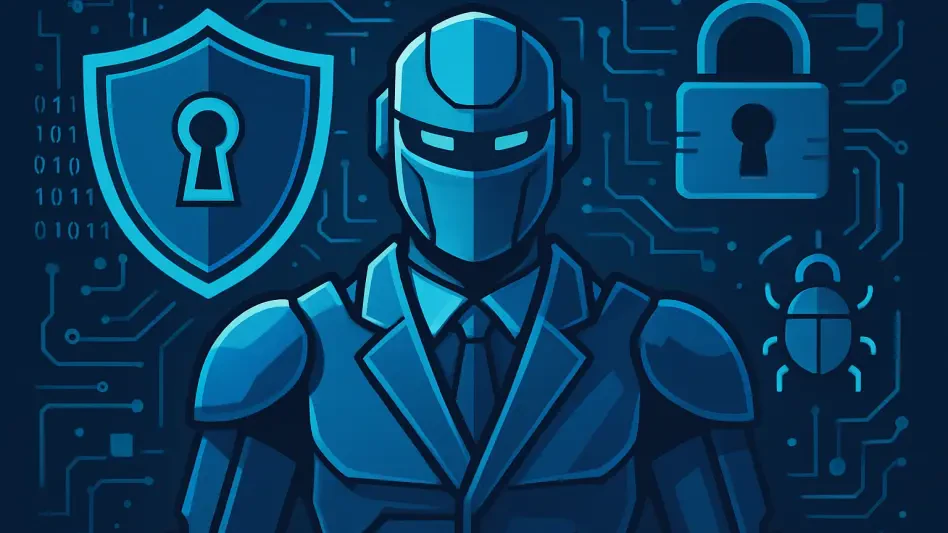The cybersecurity job market in the United States is thriving, with diverse roles available for professionals equipped to tackle the growing threats to digital infrastructure. As of March 2025, a wide array of positions is open, catering to different expertise levels and specialties within the industry.
Leadership Roles in Cybersecurity
Chief Information Security Officer (CISO)
High-level positions, such as the Chief Information Security Officer (CISO) at Amplitude, are crucial for orchestrating a comprehensive security strategy that aligns with business goals. The CISO role is integral to any organization, as it involves overseeing all aspects of security, including risk management, cyber threat analysis, and security incident response. As the head of the security department, the CISO ensures that security measures are in place to protect sensitive information and that these measures comply with industry standards and regulations. Additionally, the CISO works closely with other C-level executives to integrate security strategies with the overall business strategy, ensuring that security risks are managed within the company’s risk tolerance.
The responsibilities of a CISO extend beyond managing day-to-day security operations. They include developing and implementing security policies and frameworks, conducting regular audits and assessments, and leading incident response teams to address and resolve security breaches promptly. At Amplitude, the CISO is also responsible for fostering a culture of security awareness among employees and providing training and resources to ensure that everyone understands their role in maintaining the organization’s security posture. This leadership position requires a deep understanding of both the technical and strategic aspects of cybersecurity, as well as excellent communication and management skills to lead a diverse team of security professionals effectively.
Director of Security Operations
The Director of Security Operations, like the position at Multi Media, demands leadership in developing and executing security operations strategies. This role is essential for maintaining a robust security infrastructure that can withstand the ever-evolving threat landscape. The Director of Security Operations is responsible for overseeing the implementation of security measures, monitoring security systems, and ensuring that any potential threats are identified and addressed promptly. This position involves coordinating with other departments to ensure that security protocols are integrated into all aspects of the organization’s operations.
In addition to their operational responsibilities, the Director of Security Operations plays a critical role in auditing and incident response. They lead efforts to conduct regular security audits to identify vulnerabilities and ensure compliance with regulatory standards. When a security incident occurs, the Director of Security Operations leads the response team to manage and mitigate the impact of the incident, conducting thorough investigations and implementing corrective actions to prevent future occurrences. Effective communication and coordination with stakeholders, including senior management, external partners, and regulatory bodies, are crucial for the success of this role.
Technical Advisory Positions
Cloud Cyber Security Technical Advisor
For those specialized in cloud environments, the Cloud Cyber Security Technical Advisor (GRC) at MUFG is a key role. This position is critical for overseeing the implementation and maintenance of cloud security frameworks, ensuring that data stored in the cloud is protected against cyber threats. The Cloud Cyber Security Technical Advisor is responsible for designing security architectures that adhere to industry best practices and regulatory requirements, as well as continuously monitoring emerging trends and risks in cloud security to adapt and enhance security measures accordingly.
The responsibilities of a Cloud Cyber Security Technical Advisor also include conducting risk assessments, implementing security controls, and developing policies to safeguard cloud infrastructure. This role requires a deep understanding of various cloud platforms, such as AWS, Azure, and Google Cloud, and the ability to design and implement security solutions tailored to each platform’s specific needs. At MUFG, the Cloud Cyber Security Technical Advisor is also tasked with providing guidance and support to other teams, ensuring that security is integrated into all stages of cloud services development and deployment. This role demands a strong technical background, excellent problem-solving skills, and the ability to stay up-to-date with the latest cloud security technologies and practices.
Principal Cybersecurity Consultant
At Course, the Principal Cybersecurity Consultant is tasked with conducting risk assessments and developing policies to prevent unauthorized access. This role demands a deep understanding of cybersecurity best practices and regulatory requirements, as well as the ability to provide strategic guidance to clients and stakeholders. The Principal Cybersecurity Consultant is responsible for identifying potential security risks, evaluating the effectiveness of existing security measures, and recommending improvements to enhance the overall security posture of the organization.
The Principal Cybersecurity Consultant also plays a crucial role in designing and implementing security controls, conducting security audits, and providing training and awareness programs to ensure that employees are equipped with the knowledge and skills to protect the organization’s assets. This position requires strong analytical and problem-solving abilities, as well as excellent communication skills to effectively convey complex security concepts to both technical and non-technical audiences. At Course, the Principal Cybersecurity Consultant works closely with other departments to ensure that security strategies are aligned with business objectives and that the organization remains compliant with industry standards and regulations.
Incident Response and Analysis
Cyber Defense Incident Responder
Incident response roles such as the Cyber Defense Incident Responder at Edgewater Federal Solutions are critical for managing and mitigating the impact of cyber attacks. These professionals are responsible for handling incident triage, assessing the scope and severity of security incidents, and recommending effective remediation strategies to minimize damage. The Cyber Defense Incident Responder plays a key role in ensuring that security incidents are promptly detected, investigated, and resolved, helping to protect the organization’s assets and maintain business continuity.
The role of a Cyber Defense Incident Responder also involves conducting post-incident analyses to identify the root causes of security breaches and developing corrective actions to prevent future occurrences. This position requires strong analytical and problem-solving skills, as well as the ability to work under pressure and respond quickly to emerging threats. At Edgewater Federal Solutions, the Cyber Defense Incident Responder works closely with other security team members, as well as external partners and regulatory authorities, to ensure that all incidents are managed effectively and in compliance with industry standards and regulations.
Insider Threat Analyst
At Control Risks, the Insider Threat Analyst investigates anomalous behaviors to mitigate insider threats, which can be just as damaging as external cyber attacks. This position involves using advanced monitoring and analytic tools to detect suspicious activities, such as unauthorized access to sensitive information or unusual patterns of behavior, that may indicate potential insider threats. The Insider Threat Analyst is responsible for conducting thorough investigations, gathering evidence, and working with other security professionals to develop and implement strategies to mitigate these threats.
The role of an Insider Threat Analyst also includes developing and enforcing security policies and procedures designed to prevent insider threats. This position requires strong analytical skills, attention to detail, and the ability to think critically about potential security risks. At Control Risks, the Insider Threat Analyst is also tasked with providing training and awareness programs to employees, helping them recognize the signs of insider threats and understand their role in maintaining the organization’s security. Effective communication and collaboration with other departments and stakeholders are essential for the success of this role, as it involves working closely with HR, legal, and IT teams to ensure a comprehensive approach to insider threat management.
Engineering and Technical Roles
Cyber Security Engineer
Positions like Cyber Security Engineer at Visa require designing and implementing security solutions to protect systems against cyber threats. This role involves performing threat assessments, identifying potential vulnerabilities, and implementing security controls to safeguard the organization’s digital assets. The Cyber Security Engineer is responsible for developing and maintaining security architectures, conducting regular security audits, and staying up-to-date with the latest cybersecurity technologies and best practices to ensure that the organization’s systems are protected against emerging threats.
The responsibilities of a Cyber Security Engineer also include conducting post-incident analyses to identify the root causes of security breaches and implementing corrective actions to prevent future occurrences. This position requires a strong technical background, excellent problem-solving skills, and the ability to work effectively under pressure. At Visa, the Cyber Security Engineer works closely with other IT and security team members to ensure that security measures are integrated into all stages of the system development lifecycle, from design and implementation to testing and maintenance. Effective communication and collaboration with other departments are essential for the success of this role, as it involves working with stakeholders to understand their security requirements and ensure that security solutions meet their needs.
Senior Product Security Engineer
In companies such as Umbra, the Senior Product Security Engineer leads security assessments and develops threat models to secure advanced technologies, including satellite and ground systems. This role involves performing detailed security analyses, identifying potential vulnerabilities, and developing and implementing effective security controls to protect critical assets. The Senior Product Security Engineer is responsible for conducting regular security audits, staying up-to-date with the latest cybersecurity trends and technologies, and providing guidance and support to other team members to ensure that security measures are consistently applied across all products and services.
The responsibilities of a Senior Product Security Engineer also include developing and maintaining security policies and procedures, conducting security training and awareness programs, and working closely with other departments to ensure that security considerations are integrated into all stages of product development. This position requires a deep understanding of both the technical and strategic aspects of cybersecurity, as well as strong analytical and problem-solving skills. At Umbra, the Senior Product Security Engineer plays a critical role in ensuring that the company’s products and services are secure and compliant with industry standards and regulations, helping to protect the organization’s reputation and maintain customer trust.
Compliance and Risk Management
Cybersecurity & Compliance Analyst
At SOLV Energy, the Cybersecurity & Compliance Analyst ensures organizational compliance with industry standards and regulations. This role involves developing, implementing, and maintaining robust security policies and governance structures to protect sensitive information and ensure compliance with regulatory requirements. The Cybersecurity & Compliance Analyst is responsible for conducting regular security audits, identifying potential vulnerabilities, and recommending corrective actions to enhance the organization’s security posture.
The responsibilities of a Cybersecurity & Compliance Analyst also include staying up-to-date with the latest regulatory developments and industry best practices, providing guidance and support to other departments to ensure that security measures are consistently applied across the organization. This position requires strong analytical and problem-solving skills, as well as the ability to effectively communicate complex security concepts to both technical and non-technical audiences. At SOLV Energy, the Cybersecurity & Compliance Analyst plays a key role in ensuring that the organization remains compliant with all relevant regulations and industry standards, helping to protect the organization’s reputation and maintain customer trust.
Third-Party Risk Management Analyst
The cybersecurity job market in the United States is booming, offering numerous opportunities for professionals skilled in combating the increasing threats to our digital infrastructure. By March 2025, there will be a vast selection of job openings that cater to various levels of expertise and specialties within the cybersecurity sector. This means that whether you are just starting out or you are an experienced professional, there will be roles suited to your skills and aspirations.
Companies are on the lookout for talent in areas such as network security, penetration testing, threat analysis, and information security management. Opportunities are not limited to any single industry, as businesses across sectors, including finance, healthcare, and government, seek to bolster their cyber defenses.
Moreover, the demand for cybersecurity professionals is driven by the continuous advancement of technology and the rising incidents of cyber attacks. As a result, the market for these roles is not only robust but also promising for future growth. This trend is reflective of the importance placed on safeguarding sensitive data and infrastructure in an increasingly digital world.
Overall, if you have the right skills and are passionate about protecting digital assets, the cybersecurity job market in the United States is ripe with opportunities ready to be seized.







